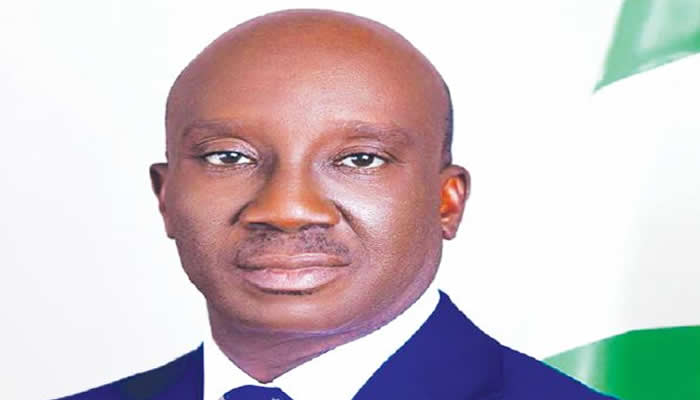The Peoples Democratic Party (PDP) has vehemently criticized a pledge made by Philip Shaibu, the Deputy Governor of Edo State, who vowed to deliver 2.5 million votes for Bola Tinubu, the presidential candidate of the All Progressives Congress (APC), in the upcoming presidential election. The PDP’s condemnation centers on the perceived impracticality of Shaibu’s promise, given the state’s voting demographics and past electoral performance, and the party views it as a desperate attempt to curry favor with the APC amidst internal political struggles within Edo State. They argue that such inflated projections not only undermine the credibility of the electoral process but also incite unnecessary tension and unrealistic expectations.
The PDP’s argument hinges on several key factors. Firstly, they point to the historical voting patterns in Edo State, which consistently show a strong PDP presence. They argue that achieving such a drastic swing towards the APC, especially given the incumbent governor Godwin Obaseki’s affiliation with the PDP, is highly improbable. Secondly, the PDP questions the feasibility of mobilizing 2.5 million votes in a state where the total number of registered voters is significantly lower. This disparity, they contend, exposes the hollowness of Shaibu’s pledge and suggests an attempt to manipulate public perception. Finally, the PDP links Shaibu’s promise to his ongoing political feud with Governor Obaseki. They speculate that the deputy governor is using this extravagant pledge as a bargaining chip to gain leverage within the APC and potentially secure his political future, given his reported strained relationship with his current party.
The PDP’s critique extends beyond the mere numerical improbability of Shaibu’s claim. They accuse the APC of promoting a culture of inflated promises and unrealistic targets, which they argue ultimately erodes public trust in the political system. They claim this behavior demonstrates a disregard for the genuine aspirations of the electorate and fosters a cynical view of political pronouncements. Furthermore, the PDP alleges that such grandstanding diverts attention from the critical issues facing Nigerians, such as economic hardship, insecurity, and unemployment, and replaces substantive policy discussions with empty rhetoric and political maneuvering.
Delving deeper into the political backdrop of this controversy reveals a complex power dynamic within Edo State. The relationship between Governor Obaseki and his deputy, Philip Shaibu, has been reportedly fraught with tension, with speculations of a rift widening over time. This internal struggle has played out publicly on numerous occasions, further fueling the perception that Shaibu’s allegiance to the PDP is tenuous. His recent overtures to the APC, including highly publicized meetings with party leaders and the now controversial vote pledge, strongly suggest a strategic realignment of political loyalties, possibly in anticipation of a future gubernatorial bid. The PDP interprets these actions as opportunistic and driven by self-interest rather than genuine concern for the welfare of Edo State citizens.
The PDP’s response to Shaibu’s pledge goes beyond mere criticism; it calls for greater scrutiny of political pronouncements and a demand for accountability from elected officials. They urge the electorate to be wary of such grandiose promises, which they deem often lack substance and serve primarily as tools for political manipulation. Moreover, the PDP emphasizes the importance of focusing on issues-based campaigns and holding politicians responsible for their track records and policy positions. They advocate for a more informed and discerning electorate that evaluates candidates based on their merits and their commitment to addressing the nation’s challenges, rather than on inflated promises and political theatrics.
In conclusion, the PDP’s strong reaction to Shaibu’s 2.5 million vote pledge for Tinubu highlights the contentious political landscape in Edo State and the broader concerns surrounding the integrity of the electoral process. The PDP’s condemnation is rooted in their skepticism about the feasibility of such a projection, their belief that it undermines public trust, and their suspicion of Shaibu’s political motivations. The incident also underscores the internal divisions within the political parties and the complex interplay of personal ambition and political strategy as the nation approaches a pivotal election. The ongoing debate serves as a reminder of the importance of critical evaluation of political pronouncements and the need for a transparent and accountable electoral system.


